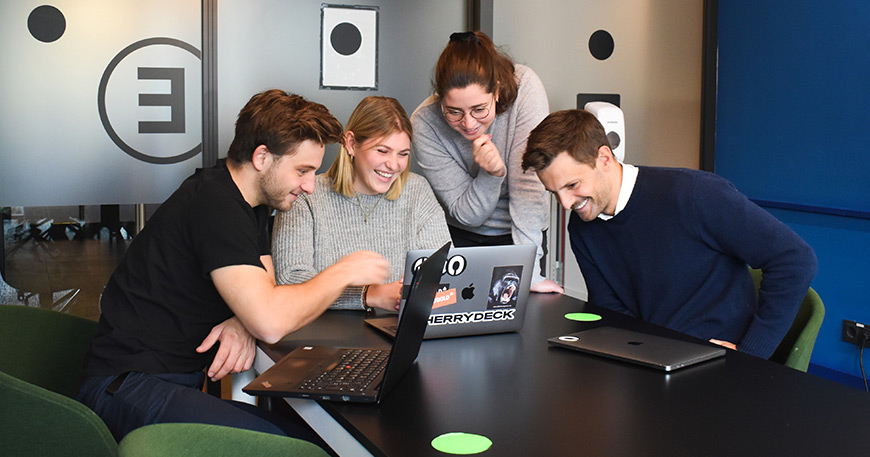1. Establishing Standard Operating Procedures (SOPs)
The implementation of clear Standard Operating Procedures (SOPs) is crucial for the efficient functioning of remote teams. They serve as guidelines that support team members in completing tasks, ensure consistency, and clarify expectations. SOPs simplify processes, promote accountability, and can significantly reduce the need for training and clarification.
2. Prioritising Communication
In the digital world of remote work, effective communication is the central element that keeps teams connected. Choosing the right tools is crucial. Video conferences, messaging platforms, and shared documents all play an important role here.
3. Regular Check-ins
Routine check-ins are the heart of a successful remote team. They not only ensure continuity in projects and goal alignment but also provide opportunities to check on team members’ well-being. In virtual work environments, the absence of daily in-person interactions can hide potential problems — both task-related and personal. Through regular check-ins, a sense of belonging can be fostered, clarity created, and collective success driven forward.


4. Clear Objectives
In the world of remote work, clearly defined, actionable goals act as the compass that guides efforts and measures success. Clear objectives provide a shared vision and ensure that every team member not only knows what they are working on but also why.
This alignment increases motivation and engagement, as each individual can see the direct impact of their contribution. In addition, managers can set clear goals and allocate resources more efficiently.
Short-term milestones alongside long-term objectives provide a clear roadmap that fosters a sense of achievement and momentum. By setting and continuously reinforcing goals, remote teams can tackle their tasks with clarity, focus, and cohesion.
5. Promoting Collaboration
Encouraging collaboration is essential. Despite physical distance, well-designed digital spaces and collaborative activities can bridge this gap.
Regular team brainstorming sessions, workshops, or virtual team-building activities improve teamwork, encourage the exchange of ideas and expertise, and strengthen the sense of belonging.
6. Continuous Feedback
Continuous feedback is essential for the success of remote teams. Unlike traditional office environments, where immediate feedback can be given through informal face-to-face conversations, remote settings require a more intentional approach.
Timely and constructive feedback ensures that team members know where they stand, what they are doing well, and where there is room for improvement.


7. Conducting Remote Training
Organising remote training ensures that team members are equipped with the latest skills, tools, and best practices required for their roles. These training sessions provide continuous learning and adaptability.
Standards can be set, and unified solutions can be defined.
8. Remote Team-Building Activities
Team-building activities are important for fostering camaraderie, trust, and a shared sense of purpose among dispersed team members. Virtual escape rooms, quizzes, or collaborative online games help break down barriers and create shared memories.
These activities are not only for relaxation and fun but also give team members the opportunity to connect outside of work-related discussions. They reduce feelings of isolation, promote open communication, and help build a strong team culture that spans across time zones and virtual workspaces.
9. Flexibility
Team members work in different time zones, have various personal commitments, and face individual challenges. Flexibility is therefore of utmost importance. By allowing flexible working hours, addressing individual needs, and staying open to new tools and processes, managers can create an inclusive and productive environment.
10. Building Trust
Instead of micromanaging, leaders must empower their employees to complete their tasks independently. This trust fosters accountability, responsibility, and initiative. Regular reviews, open communication, and recognition of achievements further strengthen this trust.
Remote Team Management with Zeitarbeit International
Would you like to hire remote teams or need support with remote team management? We at Zeitarbeit International are happy to help! We place IT experts, IT teams, cybersecurity specialists, and software developers.
For over 25 years, we have been empowering companies through technology. Our expertise lies in digital transformation, software outsourcing, software development & cyber security, leveraging our global IT consulting. Get in touch with us and become our partner!

